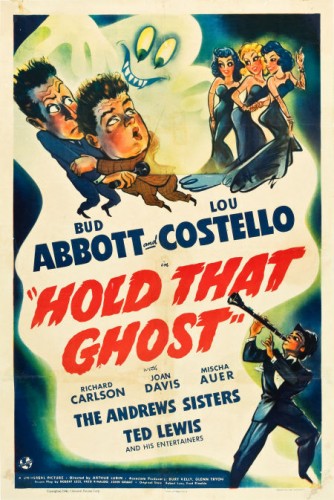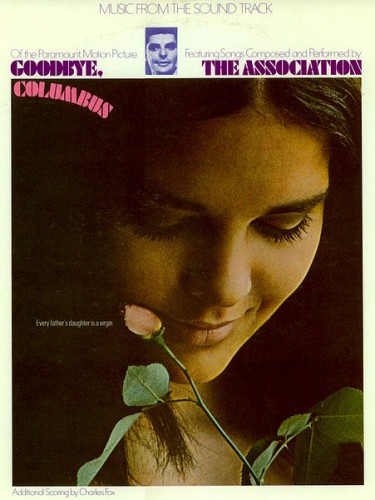
Episode 121: Hold That Ghost
 Love cannot exist in a context of fear. It can only exist in a context of freedom. Similarly, freedom issues in love — not in using. This cast is a rumination on freedom in relation to love. It’s intangible, freedom; and not substantial. Just try to Hold That Ghost! It will elude you, careen around you, and absolutely resist bottling.
Love cannot exist in a context of fear. It can only exist in a context of freedom. Similarly, freedom issues in love — not in using. This cast is a rumination on freedom in relation to love. It’s intangible, freedom; and not substantial. Just try to Hold That Ghost! It will elude you, careen around you, and absolutely resist bottling.
In Podcast 121 Maxim Gorky will “Come to my Aid” (Simply Red), and you’ll like what he adds. Throw in something by The Young Rascals, and it’s heaven. Where Freedom enables Love, there is heaven. Mars is Heaven.
Episode 122: Worst That Could Happen
This cast concerns labels, specifically the label “Zwinglian”; and one that is even worse; and the power of labels to categorize and therefore render null and void any number of possible understandings and positions, and people.
In my own religious setting it used to be the absolute kiss of death if your theology of the Holy Communion were labelled “Zwinglian” (i.e., “Baptist”). It made no difference that the Gorham Judgment from the Church of England had affirmed a “low” doctrine of the Eucharist as being within orthodox bounds. No, if you questioned the “Realist” position in relation to the Eucharist, you would be regarded as unclean. The disparaging title “Zwinglian” was perfect.
But there’s another adjective, too. It relates to one-way love — grace, in other words. If this second label comes at you, it may well stick to you forever. You’ll have to listen to this podcast in order to hear its name.
The podcast draws its metaphor from Jimmy Webb and ‘The Brooklyn Bridge’. It draws comfort from a George Harrison song, the immortal “This Is Love” from the post-Apple period.
The cast is summed up in a sentence from a famous church historian, albeit a labelled one: “In the idea that God is nothing but love, the concept of God is at once brought to the loftiest and most unequivocal formulation.”
Episode 123: Saint’s Progress
John Galsworthy wrote an important play and a good novel on the subject of parish clergy. The play is called A Bit O’ Love and was first performed in 1915. The novel is called Saint’s Progress and was written during the First World War and published in 1919.
 Each of these shattering works describes the breakdown and the stitching-back-together of a parish priest, one a rural curate, Michael Strangway, and one an urban vicar, Edward Pierson. Each of these good and even saintly men has allowed his religion to become a suppression of some of his best qualities, especially those relating to art and beauty, and also to passionate love for a woman. Each man must “come undone” (The Guess Who) and each must transmute, in his own way. Strangway transmutes in a Franciscan manner; Pierson, somewhat less resolvedly.
Each of these shattering works describes the breakdown and the stitching-back-together of a parish priest, one a rural curate, Michael Strangway, and one an urban vicar, Edward Pierson. Each of these good and even saintly men has allowed his religion to become a suppression of some of his best qualities, especially those relating to art and beauty, and also to passionate love for a woman. Each man must “come undone” (The Guess Who) and each must transmute, in his own way. Strangway transmutes in a Franciscan manner; Pierson, somewhat less resolvedly.
You read these works and ask yourself, if you know about ordained ministry and ministers, or are interested in them: How did Galsworthy know? The man seems to have seen into us! What he has seen constitutes something that is “half-baked”, to use the expression deployed in “A Bit O’Love” for Mr. Strangway. Galsworthy also sees the spiritual and loving aspiration which exists in each man, which is the reason that each has entered the ministry.
After I recorded the cast, I jumped at a piece of concluding music that I owe to my recently deceased sister-in-law. This song, which she gave in death, in a manner of speaking, is about as hopeful as you can get.
Therefore Podcast 123 is published in loving memory of Dr. Helen Grace Cappleman.
Episode 124: Done
There is a sixth sense in Galsworthy that rivals Kipling’s sixth sense. You keep asking yourself, “How did this man know these things?”
To wit, How did he know about Roman Catholicism in early 21st-Century perspective?
How did he “get” the Atonement with such implicit understanding and overwhelming expression? I am thinking about his last play, “The Roof” (1929).
How did he understand the task of human life in such a way that he could lecture his own principal character and hero in “Saint’s Progress”, and predict ‘Mr. Pierson’s’ “way of all flesh”; or rather, his River of All Life for All People?
My podcast concludes with a proposal for moving beyond the “half-baked”, in our required Pilgrim’s Progress, towards a state of being ‘done’. Like a pie.
[youtube=https://www.youtube.com/watch?v=Lol5GTfnPHQ&w=600]

COMMENTS












